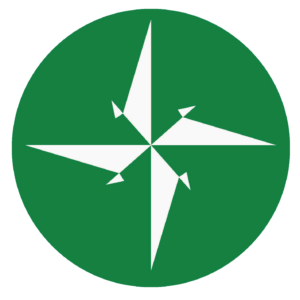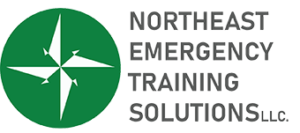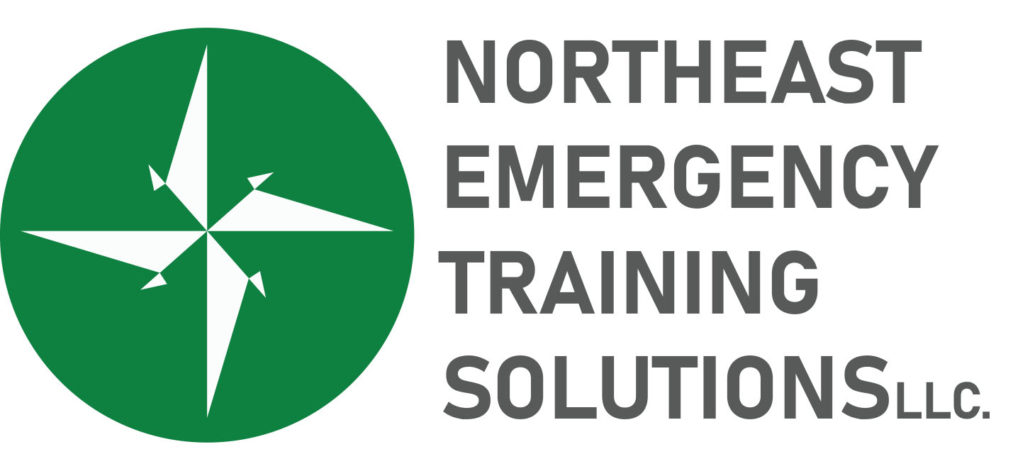AEMT Course Syllabus Fall 2021 (Oct.-Jan.)
AEMT Course Syllabus Fall 2021 (Oct.-Jan.)
Instructor/Coordinator: Timothy Ferris, NRP/ EMS ICInstructor/Coordinator Contact Information:
Tim Ferris (C) 970-215-4586; Email- tim@netsvt.com
Course Meeting Days and Times: Mondays and Thursdays 18:00-21:00
Saturdays (as listed) 08:30-16:00
Course Location: TBD Lab Location:TBD
Cost: $1250.00 (Includes access to EMS Testing Program; does NOT include course textbook)
Course Deposit and Refund Policy:
Students are required to provide a minimum deposit of $375.00 to secure a seat in the course. Full payment is preferred, but payment plans may be considered on a case- by-case basis. Full paymentis due by (6) weeks from the course start date. Full refunds for the class will be granted if thestudent drops from the course within the first
(2) weeks. No refunds will be granted after the first (2) weeks have passed.
Course Prerequisites:
Students must hold a current Vermont or National Registry EMT license and be affiliated with aVermont-licensed Advanced Life Support (ALS) agency.
Students must also have a current American Heart Association Healthcare Provider (or equivalent) CPR card.
Course Description
The Advanced Emergency Medical Technician (AEMT) Course is a comprehensive program consistingof both classroom (didactic), skills lab, clinical (hospital observation) and field (ambulance observation) components. This course adheres to the 2009 National EMS Education Standards which are based on the National EMS Core Content and the National EMS Scope of Practice that define the minimal entry-level educational competencies for each level of EMS training and has replaced the DOT National Standards curricula used in the past.
Teaching/Learning Methods:
Teaching-learning methods in this course may include, but are not limited to, assigned readings,presentations, discussion, critical thinking exercises, labs, and class activities. Evaluation proceduresinclude quizzes, written examinations, and assignments.
Course Objectives:
At the completion of this course the student shall be able to:
- Describe the roles of EMS in the health care
- Demonstrate the professional attributes expected of
- Perform the roles and responsibilities of an AEMT with regard to personal safety and wellness, as well as the safety of others.
- Perform the duties of an AEMT with regard for medical-legal and ethical issues, including functioning under medical direction and within the scope of practice.
- Apply principles of anatomy, physiology, pathophysiology, life span development, and therapeutic communications to the assessment and management of patients.
- Identify the need for and perform immediately lifesaving interventions to manage a patient’s airway,breathing, and circulation.
- Assess and manage patients of all ages with a variety of complaints, medical conditions, and traumatic injuries.
- Apply principles of emergency medical services operations, including considerations inambulance and air medical transportation, multiple-casualty incidents, gaining access to andextricating patients, hazardous materials incidents, and responding to situations involving weaponsof mass destruction.
Course Textbook:
Brady Books Advanced EMT: A Clinical-Reasoning Approach
Course Completion Requirements:
Successful completion of this course requires adherence to course policies, completing all course assignments, maintaining a course average of 80% with a minimum score of 80% on the coursefinal examinations, and successfully demonstrating all required skills. In addition students mustalso:
Properly administer medications at least 12 times:
| 2 oral | 2 IM | 2 SC |
| 2 IV | 2 sublingual | 2 nebulization |
Successfully access the venous circulation on at least 20 patients of various age groups; and
Ventilate at least 5 patients of various age groups.
Each student must also participate in the assessment and management of patients with these chief complaints:
Perform an advanced patient assessment on at least 5 trauma patients.
Perform an advanced patient assessment, formulate and implement a treatment plan on:
At least 5 patients with chest pain, 2 pediatric patients with dyspnea (difficulty breathing),
5 adult patients with dyspnea (difficulty breathing), and 5 patients with altered mental status
Course Attendance Policy:
Student attendance is required at all scheduled classes, including lab sessions. Students may bedropped from the course for excessive absences of any kind.
Excused absences may be granted by the course instructor for extenuating circumstances. If more than two absences occur for any reason, the status of the student will be reviewed by the faculty todetermine a disposition. Course failure is likely under these circumstances.
If a student misses any class, he or she is responsible for any missed quizzes, examinations, and material covered in that class session. Prompt arrival is expected at all class activities. It is the student’sresponsibility to sign in on the attendance roster.
Comportment:
Students are expected to conduct themselves in accordance with the professional expectations for EMTs at all times. Students are reminded that they are representatives of Vermont EMS as well as the agenciesthey serve. Professional conduct is essential to a successful course experience and rewarding EMScareer.
Dress and Appearance:
- Students shall be appropriately and neatly attired so as not to distract from the learning process. Students should wear comfortable slacks or pants, shirts or t-shirts, and shoes or sneakers.
- For the safety of the student and others, students may not wear shorts, tank tops, half shirts, sleeveless shirts, halter-tops, tube tops, skirts, open toe/heel shoes or sandals.
- Students should dress with safety in mind, as training sessions will require the use of various equipment and training aides.
- Staff members accept the responsibility for reasonable interpretation of this policy and advising of the student in its regard.
- Students arriving wearing inappropriate attire may not be able to participate in the training evolutions, for the safety of the student.
*On days of practical labs the students will wear clothing similar to what they will wear while on duty withtheir squad. This provides the students the ability to train like they will practice.*
Academic Dishonesty:
Academic dishonesty in any form will not be tolerated and is grounds for immediate dismissal from the program and other administrative action. Examples include, but are not limited to:
- Cheating in any form
- Falsification or forgery of academic documents, applications, clinical evaluations, lab evaluations, etc.
- Plagiarism (including copying and pasting of electronic text into assigned work)
Course Grading and Grading Scale:
Retest and Late Exam/Assignment Policy:
Students with a non-passing grade on an exam will be allowed (1) retest opportunity per exam. Theretest must occur within (1) week of the closing date of the posted exam. (10) points will automatically be deducted from whatever score is obtained on the retest and the resulting score will bethe recorded exam score in the gradebook.
Students who miss an exam, without a valid excuse, will be given a zero and must then follow the policy for a non-passing exam score.
As for a late assignment, (10) points will be deducted for each day that the assignment is late.
1 Assignment 20 % each
7 Exams 5 % each (35%)
Final Skills Exam 15 %
Final Written Exam 30 %
Total 100 percent
| Percent | Letter Grade |
| 95-100 | A |
| 90-94 | A- |
| 85-89 | B |
| 80-84 | B- |
| 75-79 | C |
| 70-74 | C- |
| 65-69 | D |
| Below 65 | F |
Course Schedule
** Indicates a lab day to be held
| Date | Chapter | Assignments, Tests, Quizzes |
| Monday, Oct. 4th18:00-21:00 | Course Introduction and Overview
Chapter 1 Introduction to Advanced EmergencyTechnician Practice |
Assignment #1
Two page paper on EMS topicof students choice |
| Thursday, Oct. 7th18:00-21:00 | Chapter 3
Workforce Wellness and Personal Safety
Chapter 4 Ethical and Medical/Legal Considerationsin Advanced EMT Practice |
|
| Monday, Oct. 11th |
Chapter 2 |
|
| 18:00-21:00 | Emergency Medical Services, Health | |
| Care, and Public Health Systems | ||
| Chapter 5 | ||
| Ambulance operations and responding | ||
| to calls | ||
| Thursday, Oct. 14th18:00-21:00 | Exam Opens OnlineChapter 6
Communication and Teamwork |
Exam I (Chapters 1-5)Opens online at 22:00 |
| Chapter 7
Medical Terminology |
||
| Monday, Oct. 18th18:00-21:00 | Chapter 8
Human Body systems |
|
| Chapter 9
Life Span Development and CulturalConsiderations |
| Date | Chapter | Assignments, Tests, Quizzes |
| Thursday, Oct 21st | Chapter 10 | Exam I closes at 18:00 |
| 18:00-21:00 | Pathophysiology | |
| Lab: | ||
| Body Systems | ||
| Monday, Oct. 25th | Chapter 11 | |
| 18:00-21:00 | Principals of Pharmacology | |
| Chapter 12 | ||
| Medication Administration | ||
| Thursday, Oct. 28th | Exam Opens Online | Exam II (Chapters 6-12) |
| 18:00-21:00 | Opens online at 22:00 | |
| Chapter 13 | ||
| Medications | ||
| Lab- Medication administration, | ||
| Intravenous Access | ||
| **Saturday, Oct. 30th08:30-16:00 | Lab- Medication AdministrationIntravenous Access | |
| Monday, Nov. 1st |
Chapter 14 |
|
| 18:00-21:00 | Patient Assessment and Clinical | |
| Reasoning | ||
| Chapter 15 | ||
| Scene Size-Up and Primary Assessment | ||
| Thursday, Nov. 4th | Chapter 19 | Exam II closes at 18:00 |
| 18:00-21:00 | History Taking, Secondary Assessment, | |
| and Reassessment | ||
| Lab: | ||
| History Taking, Primary Assessment, | ||
| Trauma Assessment |
| Date | Chapter | Assignments, Tests, Quizzes |
| Saturday, Nov. 6th08:30-16:00 | Lab- IV Access, Basic and AdvancedAirways, IO Access, Cardiac Arrest | |
| Monday, Nov. 8th18:00-21:00 | Chapter 16
Airway Management |
Assignment #1 due |
| Lab-
Airway Management and AdvancedAirway Placement |
||
| Thursday, Nov. 11th18:00-21:00 | Exam Opens Online | Exam III (Chapters 12-16)Opens online at 22:00 |
| Chapter 17
Resuscitation: Managing Shock andCardiac Arrest |
||
| Chapter 18
Vital Signs and Advanced MonitoringDevices |
||
| Monday, Nov.15th 18:00-21:00 | Chapter 21
Cardiovascular Disorders |
|
| Thursday, Nov. 18th | Chapter 22 | Exam III closes at 18:00 |
| 18:00-21:00 | Neurological Disorders | |
| Chapter 23 | ||
| Endocrine Disorders | ||
| Monday, Nov. 22nd18:00-21:00 | Chapter 20
Respiratory Disorders |
| Date | Chapter | Assignments, Tests, Quizzes |
| Thursday, Nov.25th18:00-21:00 | No Class
Happy Thanksgiving! |
|
| Monday, Nov. 29th18:00-21:00 | Exam Opens Online | Exam IV (Chapters 17-23)Opens online at 22:00 |
| Chapter 24
Abdominal Pain and GI Disorders |
||
| Chapter 25
Renal, Genitourinary, and GynecologicDisorders |
||
| Thursday, Dec. 2nd | Chapter 26 | |
| 18:00-21:00 | Hematologic Disorders | |
| Chapter 27 | ||
| Immunologic Disorders | ||
| Monday, Dec. 6th18:00-21:00 | Chapter 28
Infectious Illnesses |
Exam IV closes at 18:00 |
| Chapter 29
Musculoskeletal and Soft TissueDisorders |
||
| Chapter 30
Disorders of ENT |
||
| Thursday, Dec. 9th18:00-21:00 | Chapter 31
Mental Illness and BehavioralEmergencies |
|
| Chapter 32
Toxicological Emergencies |
| Date | Chapter | Assignments, Tests, Quizzes | |
| Monday, Dec. 13th | Exam Opens Online | Exam V (Chapters 24-32) | |
| 18:00-21:00 | Opens online at 22:00 | ||
| Chapter 33 | |||
| Trauma Systems and ICS | |||
| Chapter 34 | |||
| MOI and Trauma Assessment | |||
| Thursday, Dec. 16th18:00-21:00 | Chapter 35
Soft Tissue Injuries |
||
| Chapter 36
Musculoskeletal Injuries |
|||
| Lab
Review Bandaging and Splinting |
|||
| **Saturday, Dec. 18th08:30-16:00 | Lab-
Review all previously coveredReview NREMT Skill Sheets |
skills, |
|
| Monday, Dec. 20thThrough
Sunday, Jan. 2nd |
No Class due to Winter Break | Exam V closes at 18:00 | |
| Monday, Jan. 3rd18:00-21:00 | Chapter 37
Head, Brain, Face , and Neck Trauma |
||
| Chapter 38
Thoracic Trauma |
|||
| Chapter 39
Abdominal Trauma |
|||
| Date | Chapter | Assignments, Tests, Quizzes |
| Thursday, Jan. 6th18:00-21:00 | Chapter 40
Spine Injuries |
|
| Chapter 41
Environmental Emergencies |
||
| Chapter 42
Multisystem Trauma |
||
| Monday, Jan. 10th18:00-21:00 | Exam Opens Online
Lab: Trauma Assessments |
Exam VI (Chapters 33-42)Opens online at 22:00 |
| Thursday, Jan. 13th | Chapter 43 | |
| 18:00-21:00 | OB and Care of the Newborn | |
| Chapter 44 | ||
| Pediatric Emergencies | ||
| Saturday, Jan. 15th08:30-16:00 | Lab
Childbirth and pediatric assessmentsAll previous NREMT stations |
|
| Monday, Jan. 17th
18:00-21:00 |
Chapter 47
Rescue Operations and Extrication |
|
| Chapter 48
Hazardous Materials |
||
| Chapter 49
Response to Terrorism |
| Date | Chapter | Assignments, Tests, Quizzes |
| Thursday, Jan. 20th18:00-21:00 | Exam Opens Online
Chapter 45 Geriatrics
Chapter 46 Patients with Special Challenges |
Exam VI closes at 18:00
Exam VII (Chapters 43-49)Opens online |
| Monday, Jan. 24th18:00-21:00 | Final Exam Opens OnlineClass Review | Final Exam (Everything!)Opens online at 22:00 |
| Thursday, Jan. 27th18:00-21:00 | Make up day(If needed) | |
| **Saturday, Jan. 29th08:30-16:00 | Final Practical Skills Test | |
| **Monday, Jan 31st18:00-21:00 | Class CommencementRefreshments will be provided | Final Exam closes at 18:00 |










